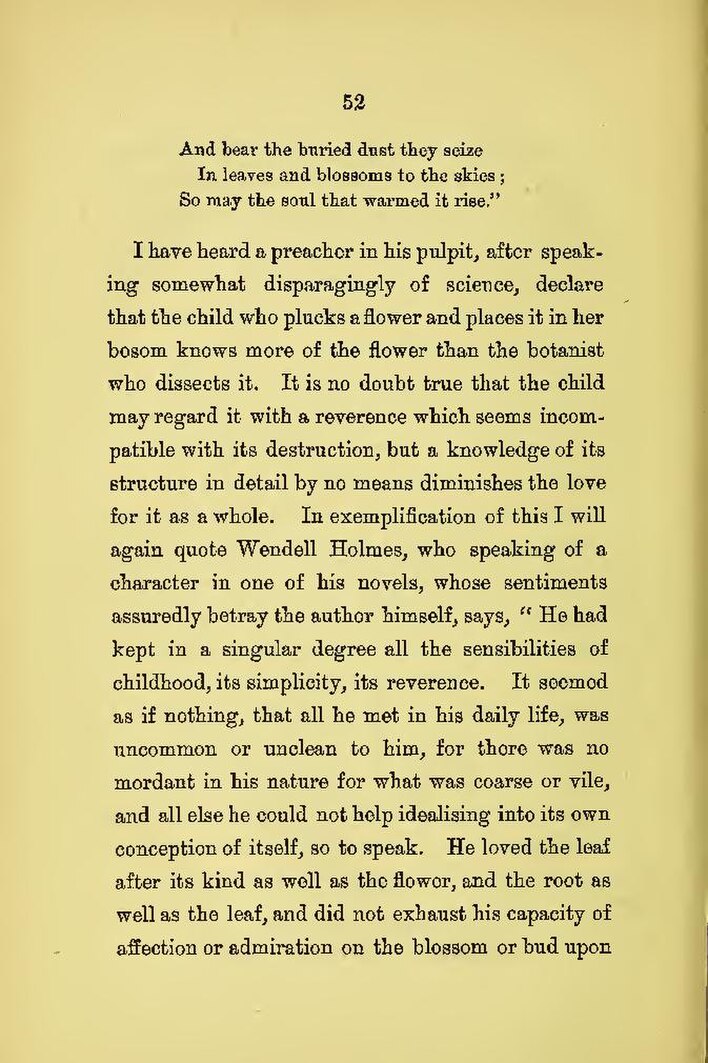And bear the buried dust they seize In leaves and blossoms to the skies; So may the soul that warmed it rise."
I have heard a preacher in his pulpit, after speak. ing somewhat disparagingly of science, declare that the child who plucks a flower and places it in her bosom knows more of the flower than the botanist who dissects it. It is no doubt true that the child may regard it with a reverence which seems incom- patible with its destruction, but a knowledge of its structure in detail by no means diminishes the love for it as a whole. In exemplification of this I will again quote Wendell Holmes, who speaking of a character in one of his novels, whose sentiments assuredly betray the author himself, says, "He had kept in a singular degree all the sensibilities of childhood, its simplicity, its reverence. It seemod as if nothing, that all he met in his daily life, was uncommon or unclean to him, for thore was no mordant in his nature for what was coarse or vile, and all else he could not help idealising into its own conception of itself, so to speak. He loved the leaf after its kind as well as the flower, and the root as well as the leaf, and did not exhaust his capacity of affection or admiration on the blossom or bud upon
